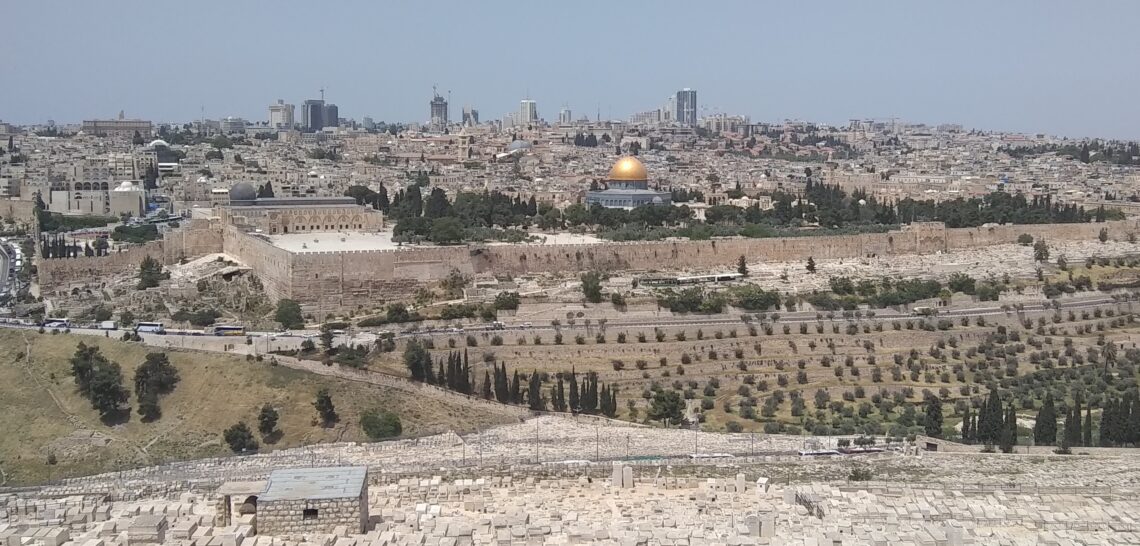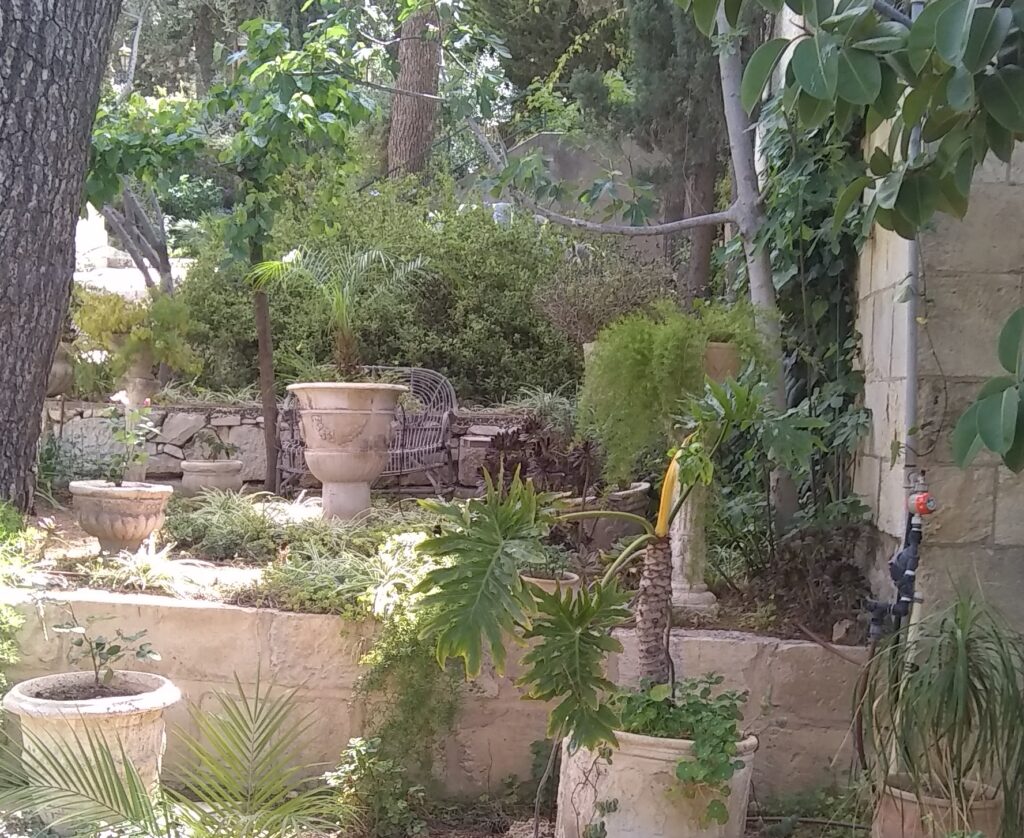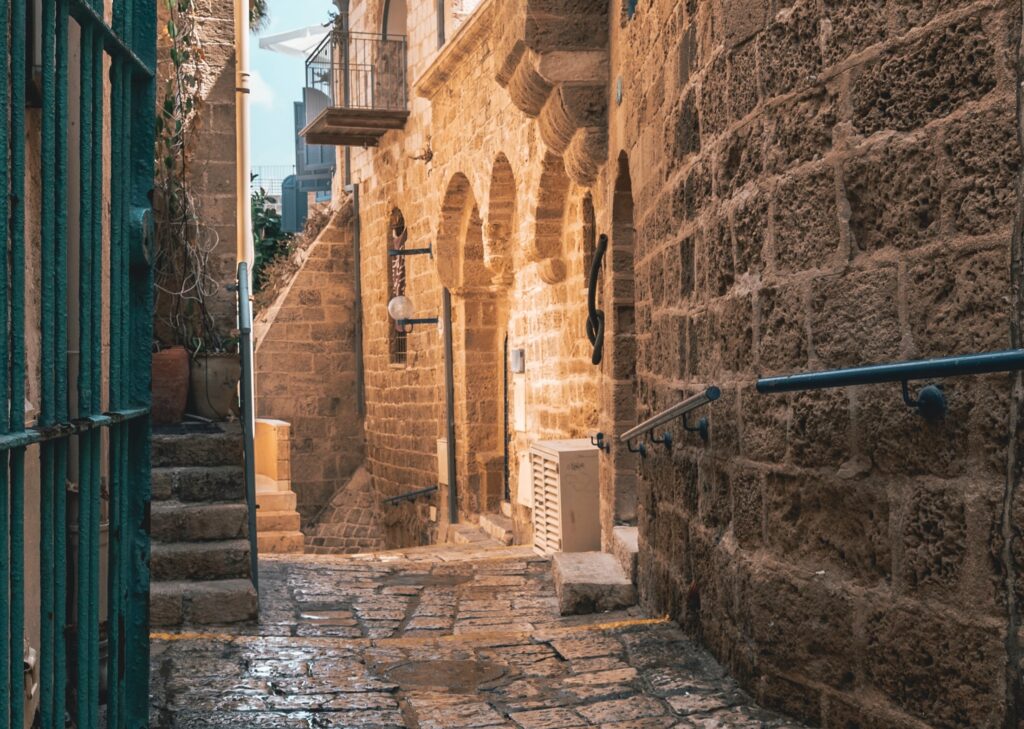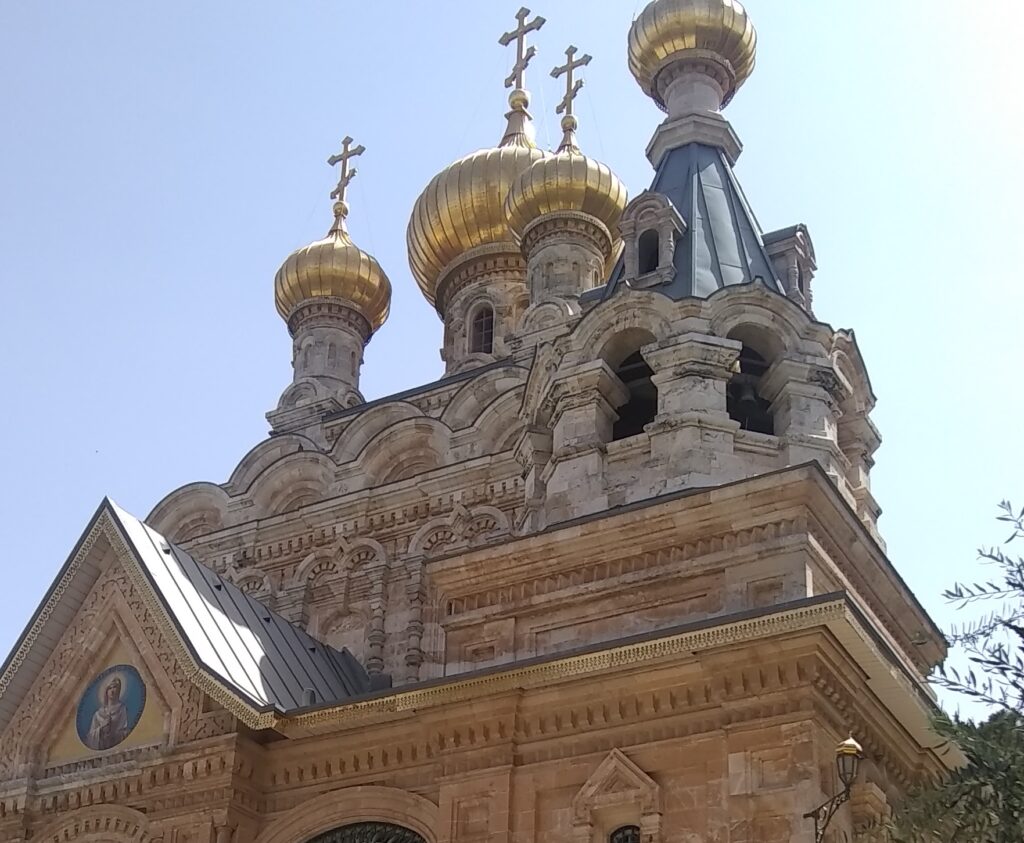
Alone in Jerusalem
Adam Brocklehurst finds himself curious about, annoyed, but ultimately captivated by the Holy City.
You don’t need to visit the holy city of Jerusalem to be impacted by it. In the early 19th century, the charismatic and cultish English prophet John Wroe believed the blue-collar textile town of Ashton-under-Lyne in the north west of England would rise as a new Jerusalem and a base for his new movement the Christian Israelite Church. He planned to surround the modest town with high walls, going as far as to have four towers built. Perhaps thankfully, that’s as far as he got!
The more impactful and influential poet and artist William Blake reimagined pre-industrial England as a New Jerusalem. His messianic vision is captured in the words of his much-loved hymn, And Did Those Feet in Ancient Time, later embellished with music by Edgar Elgar, which has become a snappier alternative to the British national anthem, and an ingrained part of the English collective imagination during great events.
Equally, Jerusalem lends itself easily to metaphor. Simon Sebag Montefiore’s envisages the city as a beautiful wonton woman (this allusion is an ancient and biblical one) who has risen to great heights only to be knocked down into ignominy time and time again by her violent lovers. These latter make up a long list of men who have possessed her, or sought to possess her, and include King David, Solomon, the Emperor Titus, King Richard I, Suleiman the Magnificent, and Napoleon, to name but a few.
The city seems an embodiment of Fellini’s tragic-comedic heroine in Nights of Cabiria, the kind-hearted streetwalker left to pick herself up after yet another man first exploits and then abandons her.
On a recent pilgrimage to the city, I found the reality to be no less illusionary. The sun dazzling on its white stone in the distance; its high walls, towers, domes and minarets; the distant repetitive call of the iman preaching from the Temple Mount, audible above the strong wind and traffic…
It’s easy to lose yourself and let time pass among the olive trees and the history that this place somehow retains in its stones and soil, as you move away from the centre following the steep paths upward, past the chest-tombs of the necropolis, through the hollyhocks, and bougainvillaea towards the summit of the Mount of Olives from where Christians believe Jesus ascended into heaven.

A subtle dissociation probably explains what happened next; trying to recall it only a few days later I find it still has a hallucinatory quality.
A man approached me; at first all I could see were his flowing robes, dazzling white in the hot afternoon sun. Then I took in his bare feet, his long thick hair, and charismatic blue eyes. He was almost a caricature of the Caucasian Christ. I caught my breath, the world momentarily stopped.
Approaching him, the only thing I felt I could ask was if he were a pilgrim, and he nodded “Indeed I am, child. Are we not all pilgrims as we pass through this life?”
His accent was California American and smooth. Suddenly, just like that, I had an epiphany, I felt certain I knew who this person was.
Carl James Joseph (though he prefers to be known as Jacob) is a native of Detroit. For a period in the early noughties he enjoyed minor international celebrity as a kind of wandering latter-day Catholic pilgrim and ascetic. Known as the ‘Jesus man’, he travelled first through the US, then across the globe passing through 20 countries before arriving in Jerusalem barefoot, with only a tunic and a blanket. To this day, he eschews the ownership of property and lives entirely off donations. Like many mystics before him, he offers advice freely to those who encounter him. His simple philosophy is one we share, ‘it’s one thing to learn by reading, it’s another to learn through experience’.
A Muslim friend who had been unable to fast during Ramadan for health reasons had asked me to provide Fidya on her behalf, a donation to help anyone I encountered in need during my time in Jerusalem, and I asked if I could give him some money or food, as I moved my fingers to my lips in the international gesture of eating. He smiled beatifically and took the crisp 50 Shekel note from me and tucked it away. Then he was gone, and I was left feeling a little elated and wondering about the strangeness of this ancient land.

The next day I was attending Catholic Mass at the church of the Holy Sepulchre, arguably the most sacred site in all of Christendom. Sitting alone at the back I wished I could have used my face mask to cover my ears, as the wailing of the African chants competed jarringly with the Latin liturgy and organ music. It was not a peaceful or prayerful environment. Furthermore, it was just 7.30am in the morning and the bacchanalian Israeli Independence Day celebrations had meant I had not enjoyed a peaceful night’s sleep.
Amidst this racket, ricocheting around inside the great mediaeval drum of the church, I noticed someone standing in the shadows following the service, a slim man in a homespun tunic, with shoulder length hair. He looked peaceful, if not a little lost and threadbare. This was in fact the real Carl James Joseph; I recognised him immediately from the photos in those long-ago tabloid articles. He was clearly not the man I had met on the Mount of Olives the day before.
Had I unwittingly been taken in by a charlatan or some other dubious modern day prophet figure? I don’t suppose I’ll ever know!
Jerusalem is like that. This most holy of cities is also one of troubling contrasts and confusion. Sacred city but city too of human trickery and human divisions.
There is a lack of hospitality from sections of the Israeli majority as one finds oneself being soundly ignored, or rudely shoved out of line as one waits patiently to enter some historic site (a type of linear defenestration perhaps?).
Paradoxically, Israeli citizens will also go way beyond what is expected if you find yourself lost or in trouble. One is still left wondering what kind of reception those angels who sought and found hospitality from Abraham, and seeded so many great nations as a result, would have received had they arrived in Israel today.
Then there is the perhaps understandable hostility of the subjugated Israeli Palestinian minority. I witnessed with depressed horror their daily routine, which necessitates running the gamut of various petty humiliations while those around simply looked on indifferently.
In response, the Islamic community keeps tight control over its limited territories and sacred spaces, to the point that it proved impossible for me to visit any of the Islamic-controlled pilgrimage sites which mean so much to Muslims, Christians, and Jews alike.
You might think as a result of all this tension that there is no peace to be found here, or no place of solitude. But you’d be wrong.

Jerusalem has a way about her that catches you unexpectedly, as the wind carries the perfume of lavender and rosemary through the deserted Kidron Valley.
She’ll take you away from the noise of the markets to a lovely convent church of gilded domes, set in beautiful gardens, where a saintly Russian Grand Duchess rests.
You find her hospitality in the smiling face of an elderly Palestinian woman who watches with pleasure as you enjoy the unexpectedly smoky tartness of a zaatar dusted flatbread.
The secret, I think, is visiting the beautiful city alone, avoiding the tour buses and groups. Let Jerusalem guide you gently around her walls, let her show you her secret places where respite can be found. It might surprise those who have visited to learn that I spent much time alone there, in contemplative stillness. I didn’t seek it, it found me.
That is perhaps what this wonderful city asks of us … that for a while we forget about the perversities of humanity and politics and rise above them, and ultimately submit ourselves fully to God, to a higher power and the peace that lies therein.
Like what you’ve read? Consider supporting the work of Adamah by making a donation and help us keep exploring life’s big (and not so big) issues!
Adam Brocklehurst
Adam Brocklehurst is a writer for Adamah Media. He graduated from Luther King House in association with the University of Manchester with a Masters in Contextual Theology, after undertaking his Bachelor’s degree in History Theology and Ethics at Bishop Grosseteste University Lincoln, and did much better than he or anyone else expected.


One Comment
Rev David Austin
Hi Adam – I enjoyed reading about your epiphany encounters. May it be a blessed time there.